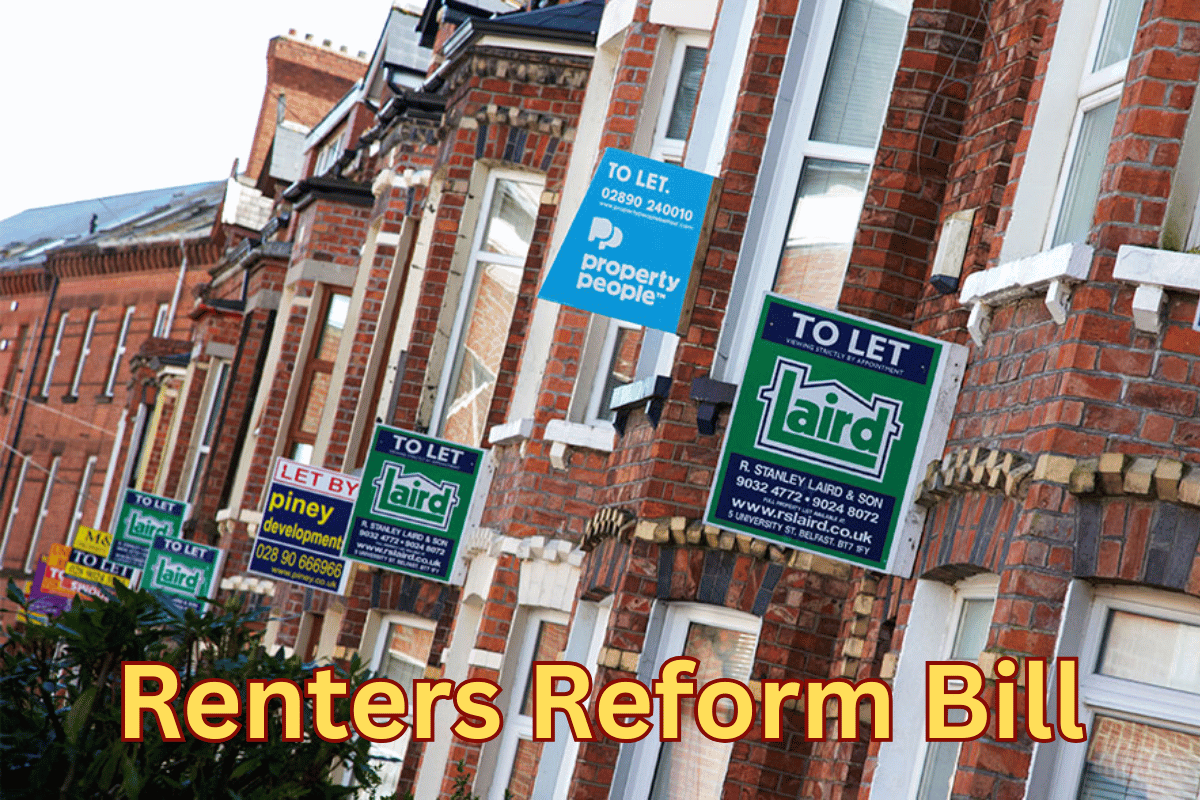The long-awaited Renters Reform Bill 2025 has finally passed through Parliament, ushering in the most comprehensive overhaul of rental laws in England in over three decades. This reform is set to reshape the private rental sector, bringing with it significant protections for renters while placing new responsibilities on landlords.
With over 11 million private renters in the UK and growing concern over insecure housing, escalating rents, and poor property conditions, this bill couldn’t have come at a more critical time. If you rent your home—or plan to—here’s what you need to know.

Key Features of the Renters Reform Bill 2025
1. Abolition of Section 21 “No-Fault” Evictions
Perhaps the most headline-grabbing change is the abolition of Section 21 evictions. This clause has long allowed landlords to evict tenants without giving a reason, with just two months’ notice. The Renters Reform Bill puts an end to this practice.
Now, landlords will only be able to evict tenants under specified grounds, such as:
-
Wanting to sell the property,
-
Moving back into the property themselves,
-
Serious rent arrears,
-
Breach of tenancy terms.
Tenants will now have stronger security, knowing they can’t be removed arbitrarily.
2. Introduction of Rolling Tenancies
The bill abolishes fixed-term tenancies and replaces them with open-ended, rolling tenancies. This means:
-
Tenants can give two months’ notice at any time to leave.
-
Landlords must provide valid legal grounds to end a tenancy.
-
Tenancy agreements will now offer greater flexibility and long-term stability.
This change benefits those seeking more permanent rental arrangements, such as families with children or older renters who need housing certainty.
3. National Landlord Register
The bill also introduces a mandatory national register for landlords, intended to crack down on rogue property owners and improve transparency.
Landlords will be legally required to:
-
Register each property they rent out,
-
Undergo basic compliance checks,
-
List properties on the new Property Portal, which will be publicly accessible.
This portal will help tenants verify whether a landlord is compliant with the law before signing a lease.
4. Strengthening of Tenant Rights
Under the 2025 rules:
-
Tenants will have the legal right to request pets, and landlords must not refuse unreasonably.
-
Renters can’t be banned from receiving housing benefits or having children, ending discriminatory practices.
-
The notice period for rent increases has been extended to two months, and tenants can challenge unjustified increases through a tribunal.
Additionally, the bill aims to enforce minimum housing standards more rigorously, including heating, insulation, and safety requirements.
5. Faster Evictions for Anti-Social Behaviour
To balance tenant protections with landlord rights, the bill also includes faster eviction pathways for tenants involved in anti-social behaviour. Landlords will be able to present evidence through streamlined court processes, which have been criticised in the past for being too slow and costly.
This measure is designed to protect neighbours and communities while ensuring landlords still have tools to maintain order in their properties.
Who Benefits Most from the Reform?
The Renters Reform Bill is primarily aimed at:
-
Tenants in insecure housing who have faced repeated evictions or harassment,
-
Young professionals, who move frequently and value flexibility,
-
Families, especially those with school-aged children needing housing stability,
-
Low-income tenants, often vulnerable to exploitation due to fewer housing options.
Landlords who maintain their properties and comply with regulations will still be able to manage their tenancies effectively but must now meet higher standards and accept reduced powers around eviction.
Challenges Ahead for Landlords and Letting Agents
While the reform is a win for tenants, it introduces new burdens for landlords, particularly those unfamiliar with compliance requirements. Critics argue that:
-
Some landlords may exit the market, reducing supply,
-
Rents could rise further to cover the administrative and legal costs of compliance,
-
The courts may become overwhelmed with new eviction-related cases under the updated rules.
To support the transition, the government plans to launch an education campaign and provide online tools to help landlords meet their obligations.
Timeline and Implementation
The bill will be phased in from late 2025, with different elements rolling out as follows:
-
Abolition of Section 21: Effective from November 2025,
-
National Landlord Register: Opens in December 2025,
-
Rolling tenancies and other changes: Active from January 2026.
Existing tenancies will be converted to the new format upon renewal or after a transition period of 12 months.
Conclusion: A New Era for Private Renting
The Renters Reform Bill 2025 signals a dramatic change in how the UK balances tenant security and landlord control. With the elimination of no-fault evictions, stricter housing standards, and greater flexibility for renters, this legislation has the potential to improve the lives of millions.
However, much will depend on how well it is enforced and whether the courts, councils, and landlords are prepared to meet the new expectations. For now, tenants can breathe a sigh of relief—knowing that fairer, safer renting is finally becoming a legal reality.
